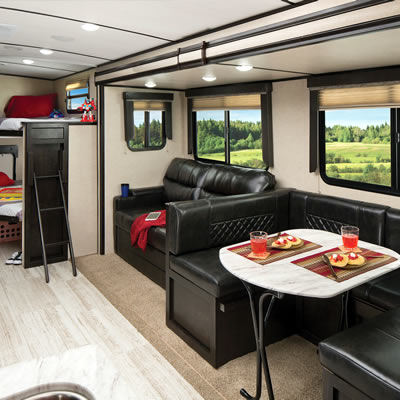Growing a new way of life for northern B.C.
Rick and Karen Parent invented and patented the RV tow bar. Now they're experimenting with food production techniques in Mackenzie.
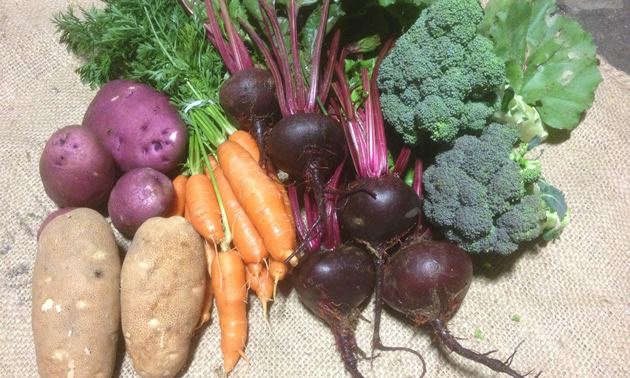
Mackenzie, B.C., has long been a single-industry town built on logging. But Rick and Karen Parent are looking to change that. They want to create a second industry in Mackenzie: agriculture.
The couple is known for an invention that changed the RV industry. They designed, patented and developed the bar that tows a car behind an RV. They licensed it to Demco, which subsequently licensed it to two other major distributors and manufacturers.
But now Rick and Karen have moved on and are experimenting in a completely different industry—food production. They moved to Mackenzie, B.C., from Edmonton and have been working on this project for four years. Their goal is to introduce a secondary industry in Mackenzie and to draw others to the area to take their project to a higher level.
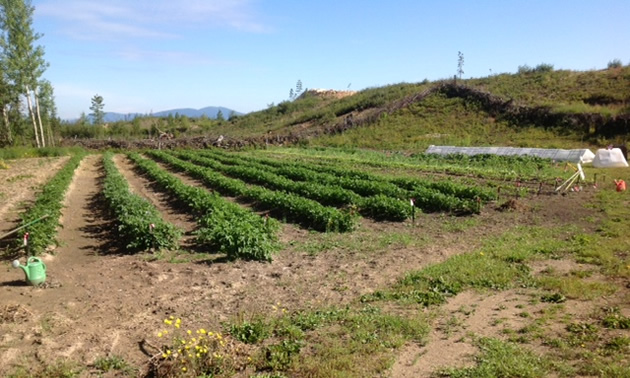
"We took post logging and turned it into agriculture," said Rick. "It involves terracing, preserving the soil, testing the soil to see what it can produce, how acidic it is, etc. We went from post logging to procuring, growing, storing and we're in the phase right now of processing—making it so that it's ready to be sent to mining camps, for instance. We should be able to supply food from Mackenzie to other communities. But we're just at the very beginning right now. We are still testing and improving."
Just like with the tow bar project, the couple want to design and test and then let industry do the rest. They are opening the door for Mackenzie to invite people to move in for a different reason than working at the mill. Rick and Karen say they have identified a huge potential to do that.
The Parents are experimenting with portable gardens that can be taken inside with a forklift, which would extend Mackenzie's 90-day growing season. They also are in the 18th year of developing a new way of roasting coffee by carmelizing the sugars. They say they've had huge success with it. Then there is an electricity co-generation project.
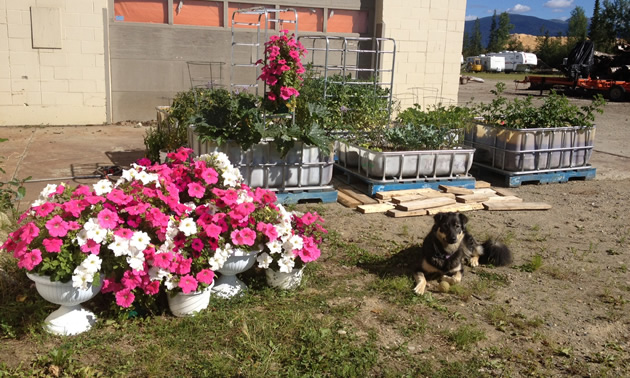
"When they burn wood waste to create electricity they also have a lot of waste heat," said Karen. "What Rick sees in the future is to capture that waste heat to heat greenhouses, so that Mackenzie could produce their own vegetables year-round."
The Parents have two acres of their property dedicated to growing food. Because of the shorter growing season, they are growing a basic vegetable crop, which includes potatoes, garlic, carrots, beets, peas, beans, zucchini and squash. Karen said the root vegetables do very well and things like tomatoes and cucumbers vary each year because they need a lot of heat. Those vegetables generally do better in a greenhouse.
Mackenzie no longer has a farmers' market, but Rick and Karen still sell their vegetables locally. The city has quite an active buy and sell Facebook page where Karen will post her vegetables if she has excess. Travellers going through Mackenzie in June, July and August are more than welcome to stop by the farm to see their operation and pick up some veggies. Karen said to just call ahead and they can give RVers a tour at no charge. They are open seven days a week.
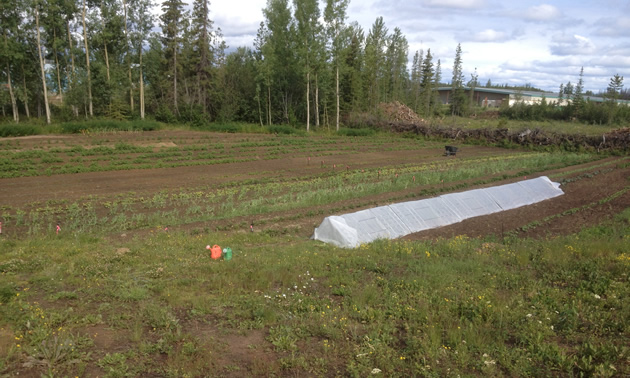
"When you're in the research and development stage, it's not knowing the final outcome that's difficult," said Rick. "The future of the project will depend on government, economics and public interest. We're not in the process of producing hundreds of acres ourselves, but rather to open up the possibilities for people to move in and operate two to three-acre plots. The land here is very inexpensive and available."
Rick and Karen have a passion for food and how it affects our health.
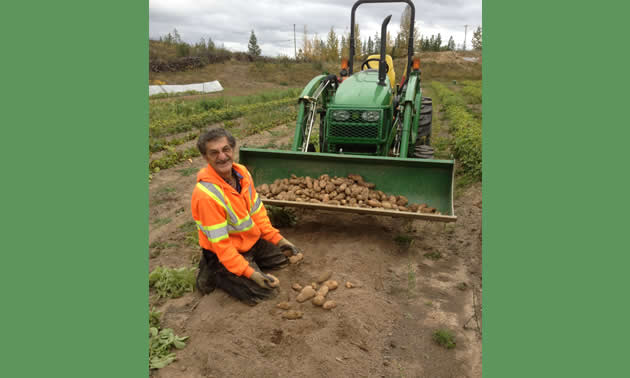
"We look at soil as the skin of the earth," said Rick. "Food is number one. We can do without gasoline and electricity, but we can't do without food. The quality of food relates to our health, which is why we need to produce good, healthy food."
Where do they see themselves in five years?
"This is just the beginning," said Rick. "Every success has to start somewhere."





